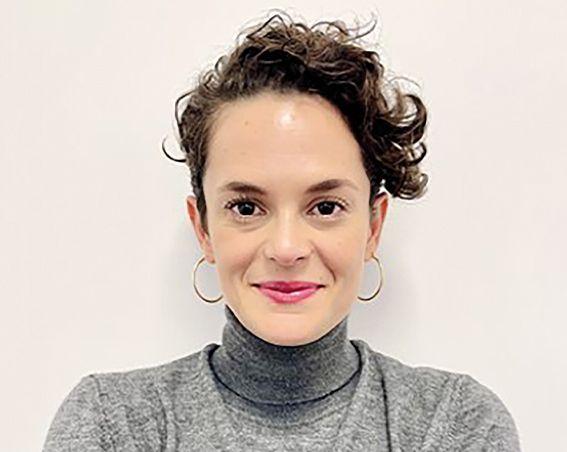Panel discussion on...
Distruptive Technology

Biotechnology: decoding the DNA of beauty toward a sustainable future
The landscape of the cosmetic industry is undergoing a deep transformation, driven by the imperative need to establish a sustainable, low-carbon, bio-based economy, marking a departure from conventional approaches.
Sustainability, across various industrial sectors, is a guiding principle that seeks a balanced and responsible approach to fulfill current needs without jeopardizing the well-being of future generations.
Within the cosmetic industry, manufacturing finished products constitutes an intricate journey that resonates across all sustainability dimensions— environmental, social, or economic. In this process, the selection and sourcing of raw materials stand at the core of a cosmetic company's strategy, significantly affecting the ultimate sustainability impact of their finished products (1).
In parallel to sustainability, there is a discernible shift where consumers, becoming more informed, prioritize quality and high-performance products with visible benefits for the skin (2).
In this context, biotechnology, harnessing cellular and biomolecular processes to develop innovative technologies and products, presents itself as the optimal solution to bridge the gap between sustainability and high-quality standards, perfectly aligning with market demands.
Small wonder if the biotechnology industry is positioned as one of the most crucial high-tech branches in the forthcoming decades (3), with revenues expected to exceed $720 billion by 2025.
In capturing the current landscape of the cosmetic industry, integrating biotech-based active ingredients is not merely a concept but a tangible reality. Biotechnology unlocks a multitude of opportunities for rapidly innovating the discovery, design, and production of active ingredients. This advancement enables the industrial-scale production of cosmetic ingredients with a significantly reduced time to market and environmental impact, along with enhanced safety and superior quality (4).
Within this framework, several biotechnologies come into play, employing and using, as bioreactors, an array of biological systems like microorganisms, fungi, and plants to produce bioactive molecules.
Microbial biotechnology exploits the potential of microorganisms through fermentation, a metabolic process in which the microorganism breaks down substrates into molecules with higher bioavailability. The majority of industrialized microbial cell factories are bacterial or yeast-based, with Escherichia coli and Saccharomyces cerevisiae emerging as primary systems. These microorganisms possess the ability to produce a diverse range of fermentation-derived active ingredients with proven benefits for the skin (5).
In addition to microorganisms, plants are important biological systems employed in biotechnology to obtain high-added-value ingredients with low sustainability impact. The market for plant extracts reached $27 billion in 2023, with an expected growth of a 9.4% CAGR in 2024 (The Business Research Company - Plant extracts global market report 2024). Nevertheless, the high demand for plant-derived cosmetic ingredients raises concerns about the over-exploitation of natural resources, variations in bioactive compounds related to seasonal harvests, and the potential presence of toxic contaminants in their composition. Biotechnology makes it possible to reproduce plant and tissue growth in vitro using systems like plant cell cultures and hairy roots. By employing these sources, the environmental impact on the planet is drastically reduced, and the safety of derived ingredients is significantly enhanced, providing extracts with proven efficacy for skin care (6;7;8).
In examining the future impact of bio-based technologies on the cosmetic industry, synthetic biology emerges as a key player. This scientific discipline involves redesigning biological systems through genetic engineering and using them as cell factories to produce novel ingredients that exhibit enhanced performance and exceptional compatibility with human biology.
This technology, when applied to microbial hosts, redefines traditional fermentation as precision fermentation. One of the recent disruptive examples of cosmetic products leveraging this technology is a range of haircare products formulated with synthetic biomimetic keratin peptides produced in microbial cell factories. Engineered to bond with and repair damaged hair, these peptides exemplify the transformative potential of synthetic biology in the cosmetic industry (9).
The redesigning capabilities of synthetic biology can also be applied to more complex organisms, such as plants. Compared to other living systems, plants' greater complexity allows for the production of proteins with intricate post-translational modifications, making them highly compatible with the skin. Numerous skincare products currently available in the market incorporate plant-derived recombinant proteins, with plant-based EGF standing out as the most prevalent example, showcasing their successful commercialization.
The convergence of synthetic biology and artificial intelligence (AI) enhances the innovation capabilities of biotech in cosmetics, thanks to advanced data analysis and predictive modeling, giving rise to a more intelligent biotechnology (10). This synergy is crucial to discovering new bioactive compounds, forecasting optimal production conditions, and optimizing research processes within cosmetic biotechnology, reshaping the beauty industry with innovative, sustainable, and personalized solutions. Looking ahead with a broader view of the market and consumer trends, AI is poised to transform the beauty industry by enhancing personalization, efficiency, and effectiveness.
The successful integration of intelligent biotechnology into the beauty industry requires a concerted effort across technical, regulatory, and marketing spheres to ensure its enduring presence. Substantial challenges lie in transitioning from laboratory settings to industrial applications while maintaining economic viability. This journey is marked by the need to consider regulatory aspects, with approval processes likely requiring demonstrations of product safety and efficacy comparable to those from established processes.
Exploring the full potential of biotechnologies within the beauty industry is essential, and efforts should be intensified to address these challenges comprehensively.
Panelists
References and notes
- Martins AM, Marto JM. A sustainable life cycle for cosmetics: From design and development to post-use phase. Sustainable Chemistry and Pharmacy 2023; 35:101178.
- Mintel 2024 Global beauty and personal care trends.
- Pfeifer K et al. Archaea Biotechnology. Biotechnol Adv. 2021;47:107668.
- Gomes C, Silva AC, Marques AC, Sousa Lobo J, Amaral MH. Biotechnology Applied to Cosmetics and Aesthetic Medicines. Cosmetics. 2020; 7(2):33.
- Pérez-Rivero C, López-Gómez JP. Unlocking the Potential of Fermentation in Cosmetics: A Review. Fermentation. 2023; 9(5):463.
- Zappelli C et al. Rose Geranium Rebalances IR-, Blue Light- and UV-Altered Skin Biomarkers. Cosmetics & Toiletries. 2022; September.
- Ceccacci S, Lucia AD, Tortora A, Colantuono A, Carotenuto G, Tito A, Monti MC. Jasminum sambac Cell Extract as Antioxidant Booster against Skin Aging. Antioxidants. 2022; 11(12):2409.
- Tito A et al. The Growth Differentiation Factor 11 is Involved in Skin Fibroblast Ageing and is Induced by a Preparation of Peptides and Sugars Derived from Plant Cell Cultures. Mol Biotechnol. 2019;61(3):209-220.
- Tinoco A, Martins M, Cavaco-Paulo A, Ribeiro A. Biotechnology of functional proteins and peptides for hair cosmetic formulations. Trends Biotechnol. 2022;40(5):591-605.
- Cornelissen M, Małyska A, Nanda AK, et al. Biotechnology for Tomorrow's World: Scenarios to Guide Directions for Future Innovation. Trends Biotechnol. 2021;39(5):438-444.

















